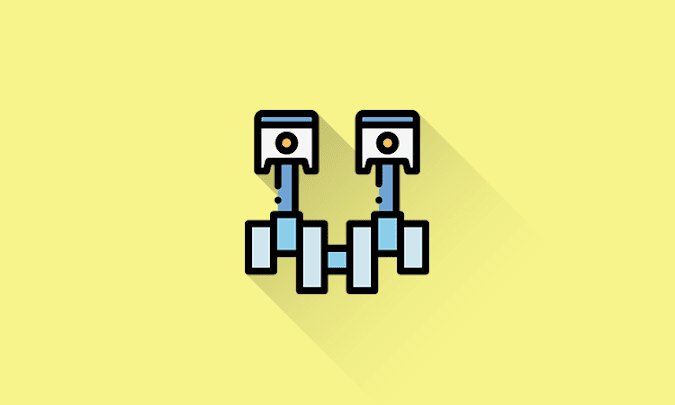Common Issues with Crankshaft Position Sensor
Like any other component of an engine, the crankshaft position sensor can fail or malfunction over time. Failure of the crankshaft position sensor can occur due to burning out, wearing out, or simply reaching the end of its lifespan after extensive use. Another common cause of failure is extreme heat exposure vibration-induced wire fracture, and corrosion on harness connector pins. Many modern crankshaft sensors are designed as sealed units that can withstand exposure to water or other fluids. When the sensor fails, it stops transmitting the signal containing critical data for the ignition and other system components.
A malfunctioning crank position sensor can worsen the engine's idle and acceleration behaviour. Driving the engine with a faulty sensor can lead to misfiring, motor vibration, and backfires. Additionally, acceleration may be hesitant, and the engine may exhibit abnormal shaking during idle. In the worst-case scenario, the car may not start.
🔗How The Crankshaft Position Sensor Is Tested?
What Causes a Crankshaft Position Sensor to Fail?
The most common issues with CPS include the following:
- Failed Sensor: Sensor itself is damaged due to various reasons, physical impacts, including age, wear and tear, and exposure to extreme temperatures.
- Wiring Issues: Wiring issues like damaged wires, corroded or lose connectors can cause intermittent signal loss or incorrect readings from the CPS.
- Poor Installation: Incorrect installation of the CPS can cause it to malfunction or fail prematurely.
- Dirty Sensor: A dirty sensor can cause inaccurate readings and signal loss. Dirt, oil, and other contaminants can build up on the optical sensor over time, affecting its performance.
- Damaged Teeth: The CPS relies on teeth on the crankshaft to generate a signal. If these teeth are damaged or missing, the CPS may not be able to generate a signal, causing engine issues.
These are the common reason for CPS failure.
Symptoms of a Bad Crankshaft Position Sensor
If your engine is experiencing any of the following symptoms, it could be a sign of a faulty crankshaft position sensor:
- Stalling or hesitation while accelerating
- Rough idling or misfiring
- Difficulty starting the engine, Prolonged cranking time
- Reduced fuel efficiency
- Engine warning light on the dashboard
The initial indication of a failing crankshaft sensor is typically the engine's refusal to start when it is hot. But once the engine cools down, it will start running again. If you notice any of these symptoms, having your vehicle inspected by a qualified mechanic is essential. They can diagnose the problem and replace crankshaft position sensor if necessary.


